
The Handmaid's Tale is a futuristic dystopian novel by Canadian author Margaret Atwood published in 1985. It is set in a near-future New England in a patriarchal, white supremacist, totalitarian theonomic state known as the Republic of Gilead, which has overthrown the United States government. Offred is the central character and narrator and one of the "Handmaids", women who are forcibly assigned to produce children for the "Commanders", who are the ruling class in Gilead.

In narratology and comparative mythology, the hero's journey, or the monomyth, is the common template of stories that involve a hero who goes on an adventure, is victorious in a decisive crisis, and comes home changed or transformed.

Mukhtaran Bibi, now known as Mukhtār Mā'ī, is a Pakistani human rights activist from the village of Meerwala, located in the rural tehsil of Jatoi in the Muzaffargarh District of Punjab, Pakistan. In June 2002, Mā'ī was the victim of a gang-rape sanctioned by a tribal council of the local Mastoi Baloch clan, as a form of 'honour revenge'; the council ruling was a result of a dispute between the wealthier Mastoi Baloch and Mā'ī's Tatla clan.

Alias Grace is a historical fiction novel by Canadian writer Margaret Atwood. First published in 1996 by McClelland & Stewart, it won the Canadian Giller Prize and was shortlisted for the Booker Prize.
"Freeforall" is a 1986 dystopian short story by Margaret Atwood, often described as a gender flipped version of her novel The Handmaid's Tale.
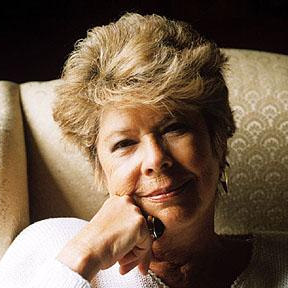
Marilyn French was an American radical feminist author, most widely known for her second book and first novel, the 1977 work The Women's Room.

The Penelopiad is a novella by Canadian author Margaret Atwood. It was published in 2005 as part of the first set of books in the Canongate Myth Series where contemporary authors rewrite ancient myths. In The Penelopiad, Penelope reminisces on the events of the Odyssey, life in Hades, Odysseus, Helen of Troy, and her relationships with her parents. A Greek chorus of the twelve maids, who Odysseus believed were disloyal and whom Telemachus hanged, interrupt Penelope's narrative to express their view on events. The maids' interludes use a new genre each time, including a jump-rope rhyme, a lament, an idyll, a ballad, a lecture, a court trial and several types of songs.
Zakhmi Aurat is a 1988 Indian Hindi drama movie starring Dimple Kapadia and Raj Babbar and directed by Avtar Bhogal. Kapadia played Kiran Dutt, a police officer who is subject to gang rape and, when the judicial system fails to convict the criminals, unites with other rape victims to castrate the rapists in revenge.
There are many theories explaining the causes of sexual violence. These theories include military conquest, socioeconomics, anger, power, sadism, traits, ethical standards, laws, and evolutionary pressures that lend some explanation to the causes of sexual violence. Most of the research on the causes of sexual violence has only been done on male offenders and has been target of criticism.
The anti-rape movement is a sociopolitical movement which is part of the movement seeking to combat violence against and the abuse of women. The movement seeks to change community attitudes to violence against women, such as attitudes of entitlement to sex and victim blaming, as well as attitudes of women themselves such as self-blame for violence against them. It also seeks to promote changes to rape laws or laws of evidence which enable rapists from avoid penalties because, for example, victims are discouraged from reporting assaults against them, or because the rapist is entitled to some immunity or because a rapist is capable in law of denigrating the victim. The movement has been successful in many jurisdictions, though many of these attitudes still persist in some jurisdictions, and despite changes to laws and significant increases in reporting of such assaults, in practice violence against women still persists at unacceptable high levels.
"Edith's 50th Birthday" are the fourth and fifth episodes of the eighth season of the American television sitcom All in the Family. The episodes, which originally aired as a two-part one hour story on CBS on October 16, 1977, were written by Bob Schiller and Bob Weiskopf, and directed by Paul Bogart.

Recy Taylor was an African-American woman from Abbeville in Henry County, Alabama. She was born and raised in a sharecropping family in the Jim Crow era Southern United States. In the 1940s, Taylor's refusal to remain silent about her rape by white men led to organizing in the African-American community for justice and civil rights.
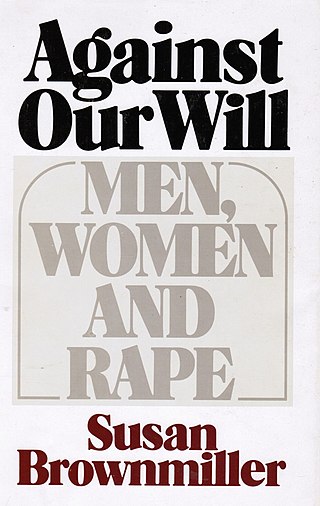
Against Our Will: Men, Women and Rape is a 1975 book about rape by Susan Brownmiller, in which the author argues that rape is "a conscious process of intimidation by which all men keep all women in a state of fear."

"Behave" is the third episode of the twelfth season of the police procedural Law & Order: Special Victims Unit and the 251st episode overall. It originally aired on NBC in the United States on September 29, 2010. The episode, which was inspired by rape kit backlogs, follows Detective Olivia Benson helping a repeat rape victim stand up to her attacker, and finding the evidence to put him away. Meanwhile, the rapist could possibly walk because the evidence against him has been misplaced, poorly stored and even accidentally destroyed.

Rape Culture is a 1975 film by Cambridge Documentary Films, produced by Margaret Lazarus and Renner Wunderlich. It was updated in 1983.
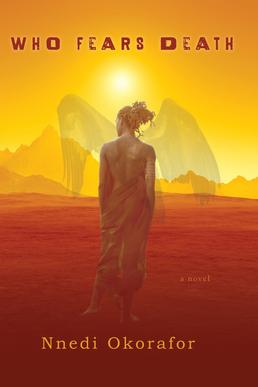
Who Fears Death is a science fantasy novel by Nigerian-American writer Nnedi Okorafor, published in 2010 by DAW, an imprint of Penguin Books. It was awarded the 2011 World Fantasy Award for Best Novel, as well as the 2010 Carl Brandon Kindred Award "for an outstanding work of speculative fiction dealing with race and ethnicity." Okorafor wrote a prequel, the novel The Book of Phoenix, published by DAW in 2015.
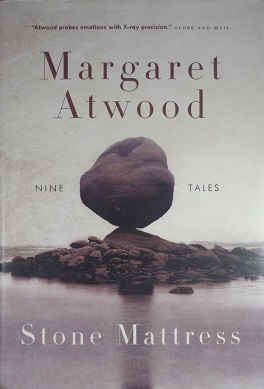
Stone Mattress is a 2014 short fiction collection by the Canadian author Margaret Atwood. Atwood describes the pieces in the collection as "tales" rather than short stories, as they draw from the mythical and fantastical aspects associated with fables and fairy tales, rather than from conventional literary realism.

Forced seduction is a theme found frequently in Western literature wherein man-on-woman rape eventually turns into a genuine love affair. A popular example is Luke and Laura from the American soap opera General Hospital.
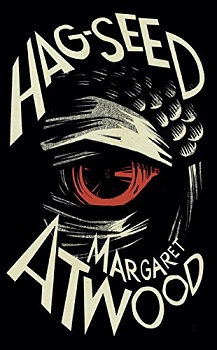
Hag-Seed is a novel by Canadian writer Margaret Atwood, published in October 2016. A modern retelling of William Shakespeare's The Tempest, the novel was commissioned by Random House as part of its Hogarth Shakespeare series.
After a sexual assault or rape, victims are often subjected to scrutiny and, in some cases, mistreatment. Victims undergo medical examinations and are interviewed by police. If there is a criminal trial, victims suffer a loss of privacy and their credibility may be challenged. Victims may also become the target of slut-shaming, abuse, social stigmatization, sexual slurs and cyberbullying.













